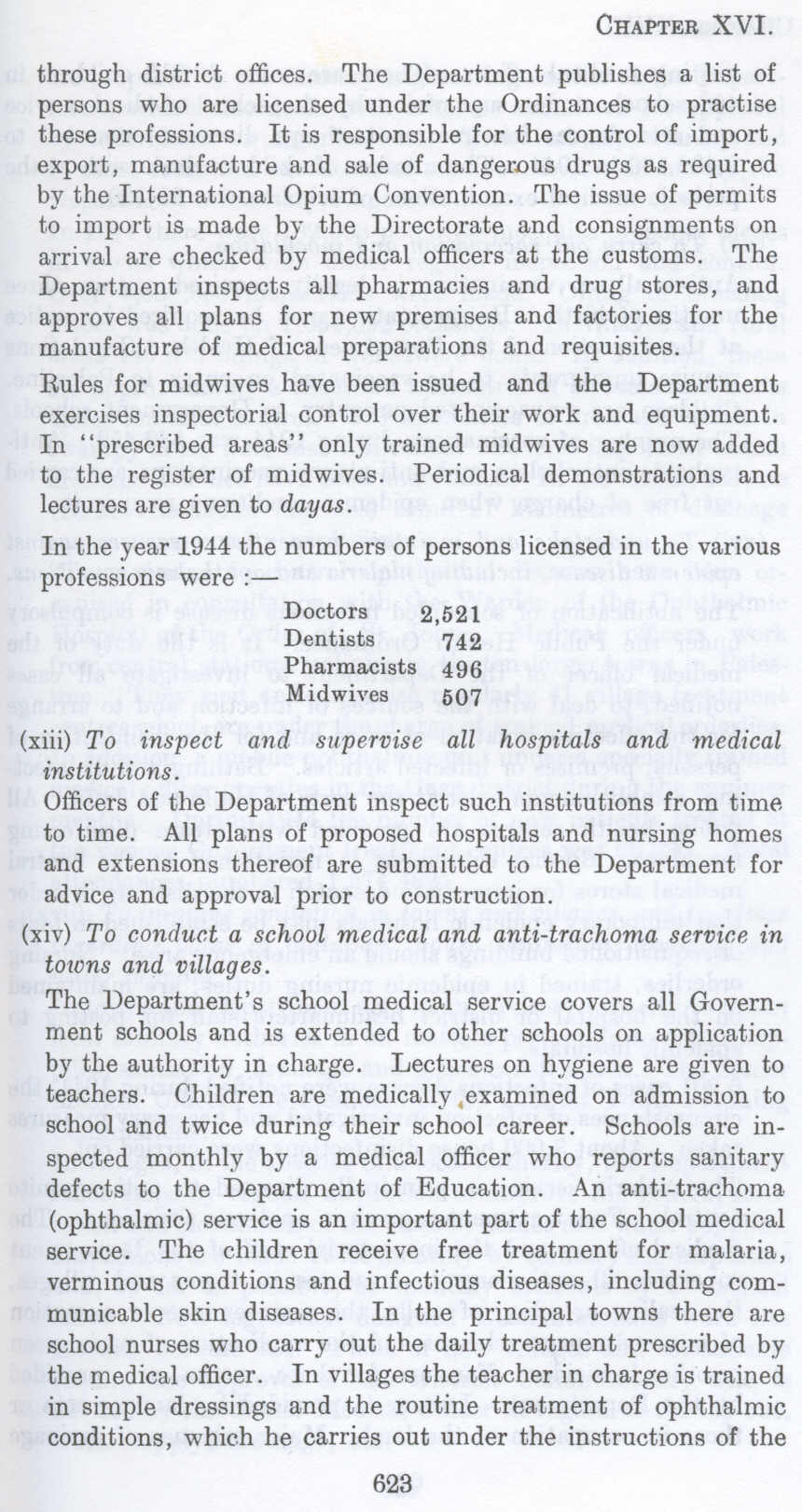| Prev | Next |  |
| Prev | Next |
| PalestineRemembered | About Us | Oral History | العربية | |
| Pictures | Zionist FAQs | Haavara | Maps | |
| Search |
| Camps |
| Districts |
| Acre |
| Baysan |
| Beersheba |
| Bethlehem |
| Gaza |
| Haifa |
| Hebron |
| Jaffa |
| Jericho |
| Jerusalem |
| Jinin |
| Nablus |
| Nazareth |
| Ramallah |
| al-Ramla |
| Safad |
| Tiberias |
| Tulkarm |
| Donate |
| Contact |
| Profile |
| Videos |
British Mandate: A Survey of Palestine: Volume II - Page 623 |
Disclaimer
The above documents, article, interviews, movies, podcasts, or stories reflects solely the research and opinions of its authors. PalestineRemembered.com makes its best effort to validate its contents.


Post Your Comment
*It should be NOTED that your email address won't be shared, and all communications between members will be routed via the website's mail server.
through district offices. The Department publishes a list of persons who are licensed under the Ordinances to practise these professions. It is responsible for the control of import, export, manufacture and sale of dangerous drugs as required by the International Opium Convention. The issue of permits to import is made by the Directorate and consignments on arrival are checked by medical officers at the customs. The Department inspects all pharmacies and drug stores, and approves all plans for new premises and factories for the manufacture of medical preparations and requisites.
Rules for midwives have been issued and the Department exercises inspectorial control over their work and equipment. In "prescribed areas" only trained midwives are now added to the register of midwives. Periodical demonstrations and lectures are given to dayas.
In the year 1944 the numbers of persons licensed in the various professions were :-
Doctors Dentists Pharmacists Midwives
2,521 742 496 507
(xiii) To inspect and supervise all hospitals and medical institutions.
Officers of the Department inspect such institutions from time to time. All plans of proposed hospitals and nursing homes and extensions thereof are submitted to the Department for advice and approval prior to construction.
(xiv) To conduct a school medical and anti-trachoma service in towns and villages.
The Department's school medical service covers all Government schools and is extended to other schools on application by the authority in charge. Lectures on hygiene are given to teachers. Children are medically examined on admission to school and twice during their school career. Schools are inspected monthly by a medical officer who reports sanitary defects to the Department of Education. An anti-trachorna (ophthalmic) service is an important part of the school medical service. The children receive free treatment for malaria, verminous conditions and infectious diseases, including communicable skin diseases. In the principal towns there are school nurses who carry out the daily treatment prescribed by the medical officer. In villages the teacher in charge is trained in simple dressings and the routine treatment of ophthalmic conditions, which he carries out under the instructions of the
623